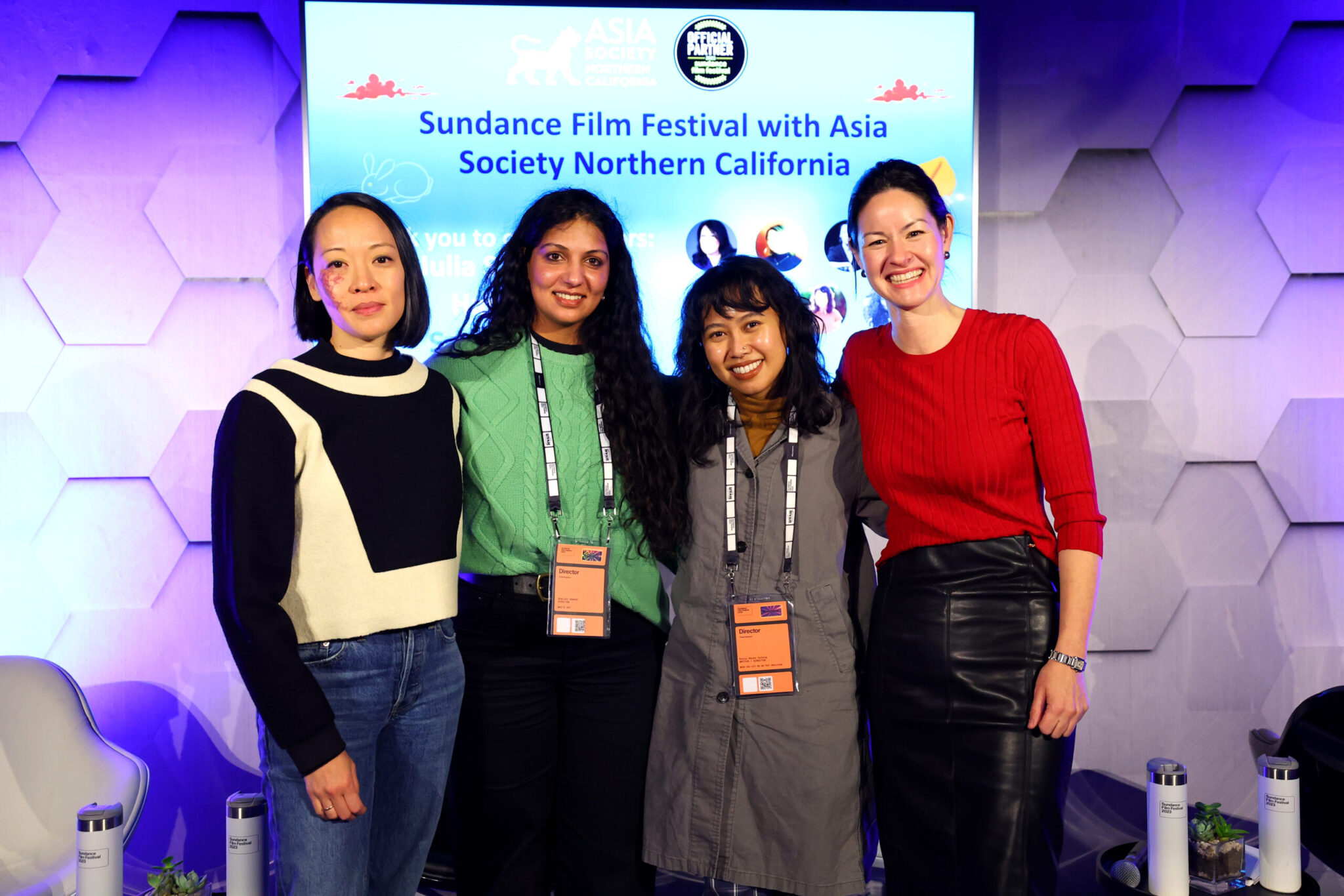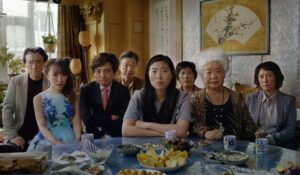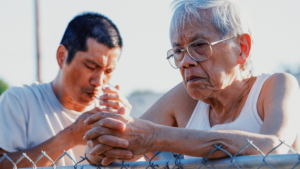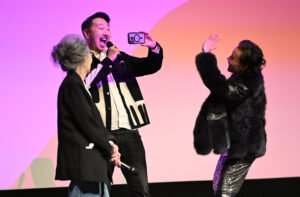Liz Sargent, Shalini Adnani, Kayla Abuda Galang and Margaret Conley attend the 2023 Sundance Film Festival With Asia Society Northern California at The Ray Theatre in Park City, Utah. (Photo by Leon Bennett/Getty Images)
By Stephanie Ornelas
It was a somber and emotional morning for audience members at the Asia Society Northern California panel on January 22 at the 2023 Sundance Film Festival. Sen. Karen Kwan had a speech prepared to kick off the annual event at the Box at the Ray in Park City, Utah, but instead she used that time to address the mass shooting that happened earlier that morning in Monterey, California.
“Today is no ordinary beginning of Lunar New Year after the tragedy and devastation that occurred in Monterey Park. It’s times like this that we remind the world that state lines do not define our communities. State lines do not put boundaries on our communities. This is a message. We do not know the motive. But it sure sends a message to our communities, with the rise of anti-Asian violence that has occurred, our recourse now is to hug our families tighter. It’s also to support one another as we stand together, and to live our lives unafraid as we stand against this violence. I’d like to ask permission for a moment of silence.”
Sometimes, silence can be loud.
The theme of family carried on throughout the event as artists including Anaita Wali Zada (Fremont), Chiaki Yanagimoto (AUM: The Cult at the End of the World), Kayla Abuda Galang (When You Left Me On That Boulevard), Shalini Adnani (White Ant), and Liz Sargent (Take Me Home) gathered to talk about the inspiration behind their films that are centered on countries they call home, including Japan and Afghanistan.
When asked to address why these projects couldn’t be filmed in their respective countries, Yanagimoto explains, “I think that connects largely to why I wanted to make this film. Because it’s a part of history that we have a hard time facing. It’s not the history we are most proud of.”
Her film centers on a deadly nerve gas attack in the Tokyo subway system that sent the nation and its people into chaos, and the cult responsible for the attack, Aum Shinrikyo.

“There’s a saying, ‘If it stinks, put a lid on it.’ If it’s something that we’re ashamed of, we just don’t talk about it. And I think that culture is a large reason why this story hasn’t been told, especially in Japan.”
Another theme explored during the discussion was coming home to multigenerational families, and the directors explained how they used special techniques like cinematography to draw audiences into their films.
“It was quite an experience. We decided to shoot on 16 mm, and going back to this tradition and trying to evoke a sense of nostalgia, really. I kind of wanted to make it feel like you were smelling the house and almost touching it,” explains Adnani.
In her short film, a man is summoned from Mumbai to his village to deal with a termite infestation threatening to destroy his childhood home.
“That was the purpose behind it, and that kind of dictated everything. We talked about spaces, and the house is so important in that film. It’s a character in itself. It was really about investigating and walking around the house, and inviting audiences into this space.”










